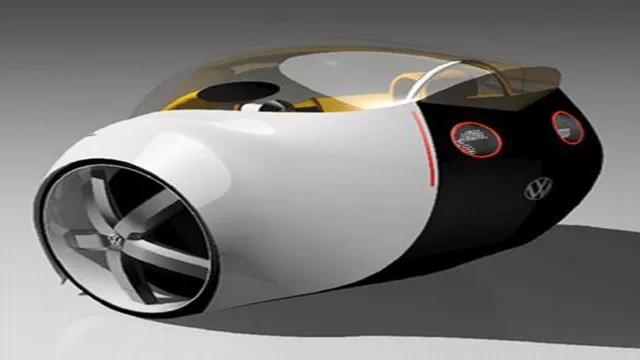Exploring the Electrifying World of Electrical Engineering Technology Careers
When we talk about the world today, it is impossible to ignore the impact of technology on our lives. One field where technological advancements have been particularly significant is electrical engineering. With the increasing adoption of smart technologies, the demand for electrical engineering professionals has grown significantly, leading to an array of diverse career opportunities.
Whether you are an experienced engineer or a recent graduate, there are numerous pathways to explore within the realm of Electrical Engineering Technology. In this blog, we will dive deeper into the field of Electrical Engineering Technology careers, examining job roles, salaries, and what you need to know to begin your journey in this ever-evolving industry. So buckle up and get ready to explore the world of Electrical Engineering Technology!
Introduction
If you’re interested in pursuing an electrical engineering technology career, your opportunities could be endless. This field combines technical and creative skills to design, develop, test, and supervise various electronic equipment and systems. You could work in areas such as communication, healthcare, transportation, and energy to name a few.
Your job could involve designing and implementing electrical systems, diagnosing problems, and making modifications as necessary. You might need to read blueprints and technical manuals, operate testing equipment, or collaborate with other professionals like mechanical engineers or project managers. With so many different areas to specialize in within this field, your career options could be wide-ranging, diverse, and rewarding.
So if you’re interested in using your technical expertise to solve practical problems, then electrical engineering technology could be the perfect career for you.
What is Electrical Engineering Technology?
Electrical Engineering Technology Electrical engineering technology is a branch of engineering that deals with the design, development, installation, operation, and maintenance of electrical systems and equipment in various industries. It is a field that requires a strong understanding of mathematics and science, as well as a deep understanding of how electricity and electronics work. Electrical engineering technology is a highly interdisciplinary field that encompasses everything from the development of computer hardware to the design of power grid systems.
In essence, electrical engineering technology is all about the practical application of electrical theory, and its goal is to find innovative solutions to real-world problems. If you are someone who enjoys working with technology and has a passion for solving complex problems, then electrical engineering technology may be the field for you!

Why Choose a Career in Electrical Engineering Technology?
If you have a passion for technology and innovation, then a career in electrical engineering technology may be a perfect fit for you. With the increasing demand for renewable energy and sustainable development, the field of electrical engineering technology is rapidly growing and offering many exciting opportunities. As an electrical engineering technologist, you can work in various industries, from renewable energy, aerospace, telecommunications to automotive.
You can play an essential role in designing, developing, and implementing complex electrical systems that power our world. The job outlook for professionals with this skill set is excellent, with high salaries and potential for career growth and advancement. So if you are ready for a rewarding and challenging career, consider pursuing a degree in electrical engineering technology.
Types of Electrical Engineering Technology Careers
If you’re interested in electrical engineering technology careers, there are several paths you can take. One option is to specialize in power systems, where you’ll work on the design and maintenance of electrical grids, as well as renewable energy systems. Another option is to focus on control systems, where you’ll design and implement automation and control systems for machines and robots.
You can also specialize in telecommunications, where you’ll work on the design and maintenance of communication systems, such as cellular networks and satellite systems. Or, you can specialize in electronics, where you’ll work on the design and development of electronic devices and components, such as computer chips and circuit boards. The possibilities are endless, and all of these electrical engineering technology careers offer rewarding and interesting work.
Electrician
As an electrician, there are a variety of career paths you can take in the electrical engineering technology field. One of the most well-known is the installation and maintenance of electrical systems in residential and commercial buildings. Electricians can also specialize in automation and instrumentation, working on systems such as robotics, sensors, and motion detectors.
Another option is power generation, where electricians work on creating and maintaining the electrical grid and power stations that provide electricity to homes and businesses. Additionally, there are opportunities in renewable energy, where electricians focus on solar, wind, and hydroelectric power systems. Being an electrician requires technical training and a strong knowledge of electrical systems, but it can lead to a fulfilling career with many different paths to explore.
Electrical Engineer
As an electrical engineer, there are various specializations that you can pursue in the field of technology. One of the most common types of electrical engineering technology careers is Power Engineering. Power engineers are responsible for designing and maintaining power systems.
They make sure that the equipment runs smoothly and that the power supply is reliable. Another type of career is Control Engineering. Control engineers design and develop control systems that help to control the functioning of machines and equipment.
They also test and troubleshoot the control systems to ensure that they are working correctly. Another specialization is Electronics Engineering. Electronics engineers design, develop, and test various electronic devices, including computers, communication systems, medical equipment, and others.
Finally, there is the field of Telecommunications Engineering. Telecommunications engineers design and develop telecommunications systems and networks, including mobile networks, the internet, and other communication systems. Whatever specialization you choose, electrical engineering offers a wide range of exciting career opportunities that involve creating and maintaining advanced technology systems that people rely on every day.
Electronics Technician
One promising career path in the field of electrical engineering technology is becoming an electronics technician. Electronics technicians work with electronic devices and systems, such as computers and communication equipment, and are responsible for troubleshooting, repairing, and maintaining them. They may also design and build new devices or modify existing ones to fit specific needs.
The skills required for electronics technicians include proficiency in reading and interpreting technical schematics, a solid understanding of electronic theory and principles, and the ability to work with complex equipment and tools. Many electronics technicians work in the manufacturing industry, while others work for telecommunications companies, government agencies, or engineering firms. With the rapid advancements in modern technology, the demand for skilled electronics technicians is expected to continue to grow steadily in the coming years.
Therefore, those interested in pursuing a career in electrical engineering technology should consider the electronics technician career path as a viable option.
Automation Engineer
As an Automation Engineer, you are responsible for designing, developing, and maintaining automated systems that streamline various processes for companies. As automation continues to advance, there are numerous types of electrical engineering technology careers that have emerged, creating plenty of opportunities for those interested in pursuing a career in this field. Some of the most popular careers include Control Systems Engineer, Robotics Engineer, and Electrical Design Engineer.
Control Systems Engineers are necessary for creating and implementing new systems to help automate processes in various industries. Robotics Engineers help design, develop, and maintain automated machines and systems. Finally, Electrical Design Engineers work to design and test new electrical hardware and supplies that improve automation technology.
As an Automation Engineer, your skills and knowledge in the use of robotic, electrical, and mechanical technology will be highly valued and sought after in the job market. It’s a fascinating, challenging, and rewarding career that offers numerous opportunities for growth and professional development.
Power Plant Operator
As an aspiring electrical engineer, there are various opportunities to explore within the field of electrical engineering technology. One such career path is that of a power plant operator. Power plant operators are responsible for maintaining and controlling the equipment and systems at power plants to ensure that electricity is generated and distributed efficiently.
They work with high voltage electrical systems and must be knowledgeable about electricity production, safety procedures, and troubleshooting techniques. Being a power plant operator requires a high level of technical skill, attention to detail, and analytical thinking. In addition, operators must be comfortable working in a fast-paced and dynamic environment.
The demand for power plant operators is expected to grow in the coming years as more power plants are built to meet the increasing energy demands. If you are interested in pursuing a career as a power plant operator, a degree in electrical engineering technology could help equip you with the skills and knowledge needed to succeed in this exciting field.
Skills Needed for a Career in Electrical Engineering Technology
Entering a career in electrical engineering technology can be intense, and there are certain skills that are essential for success in this field. First and foremost, a strong foundation in mathematics and physics is necessary to understand and solve complex problems. Additionally, attention to detail and critical thinking skills are crucial when designing and implementing electrical systems.
Knowledge of computer software programs like AutoCAD and MATLAB is also beneficial when creating and analyzing electrical schematics. Effective communication skills are just as important, since electrical engineers often collaborate with other team members and need to be able to convey their ideas and findings clearly. Finally, it’s essential for electrical engineers to stay current in their field by keeping up with new technologies and trends, so a passion for ongoing learning is a must.
If you possess these skills and enjoy working on complex, cutting-edge technologies, then a career in electrical engineering technology could be the perfect fit for you.
Technical Skills
When it comes to pursuing a career in Electrical Engineering Technology, having a strong foundation of technical skills is crucial. This field requires proficiency in all aspects of electrical and electronic systems, from designing and testing circuit boards to working with different software systems. Proficiency in coding languages such as C++, Java, and Python is essential.
Additionally, experience with computer-aided design (CAD) software such as AutoCAD and SolidWorks is crucial for designing electrical components and systems. So, if you have a passion for technology and enjoy working with electronic systems, developing your technical skills in these areas will give you a solid foundation to build your career as an Electrical Engineering Technician.
Problem-Solving Skills
When it comes to pursuing a career in electrical engineering technology, there are several skills that are essential for success. One of the most important of these is problem-solving skills. As an electrical engineering technician, you will be responsible for assessing and solving complex problems using your knowledge of electrical systems, circuits, and devices.
Additionally, you will need to be able to analyze data, identify trends, and develop solutions that are both efficient and effective. To develop these skills, it’s important to practice critical thinking and decision-making, stay up to date with technological advances, and seek out opportunities to get hands-on experience working with electrical and electronic systems. By honing your problem-solving abilities, you’ll be able to approach any challenge with confidence and find solutions that work.
Communication Skills
One of the essential skills that anyone pursuing a career in Electrical Engineering Technology should possess is effective communication skills. Electrical engineering technology is a complex field that involves the use of specialized terminologies and concepts that can be challenging to understand for laypeople. Therefore, professionals in this field must have the ability to communicate technical information in a way that can be easily understood by the general public.
This means that they should have strong verbal, written, and visual communication skills to convey their ideas effectively. Additionally, they must be good listeners and able to understand the needs and concerns of their clients and co-workers. By improving their communication skills, Electrical Engineering Technology professionals can build strong working relationships and effectively collaborate with team members, ultimately leading to the successful completion of projects.
Teamwork Skills
“Teamwork Skills” Electrical engineering technology involves designing and developing electrical systems and equipment. However, it’s not just a technical job; there are important teamwork skills that are necessary to excel in this career. Collaboration and effective communication are crucial to success, as you’ll need to work closely with colleagues and clients to assess needs and find solutions.
Additionally, problem-solving and critical thinking skills are vital in determining the best approaches to challenges that arise. Being able to adapt and handle change is also important, as technology is always evolving and new developments may require you to adjust your methods. By honing your ability to work well in a team, think critically, and innovate, you’ll be well-equipped to thrive in this dynamic field.
Job Outlook and Salary
The field of electrical engineering technology offers a promising career outlook for job seekers. According to the Bureau of Labor Statistics, employment in this field is projected to grow 4% from 2019 to 2029, about as fast as the average for all occupations. As technology continues to advance and businesses seek to improve their operations, the need for skilled electrical engineering professionals will remain in high demand.
The median annual wage for electrical and electronics engineering technicians, which include those in the electrical engineering technology field, was $65,260 as of May 2020. This demonstrates the financial benefits that come with a career in this field. Pursuing a degree or certification in electrical engineering technology can lead to a variety of career paths, including roles in research and development, manufacturing, construction, and more.
Overall, this field offers job security, growth potential, and the opportunity to make a positive impact through innovation and problem-solving.
Job Outlook for Electrical Engineering Technology Careers
The job outlook for electrical engineering technology careers is looking promising. According to the Bureau of Labor Statistics, the employment of electrical and electronics engineering technicians is projected to grow 2 percent from 2019 to 202 This growth is due to the increasing demand for electronics in a variety of industries, including healthcare, telecommunications, and transportation.
Additionally, the median annual salary for electrical engineering technicians is $65,260, which is higher than the median annual wage for all occupations. Those with higher levels of education and experience can expect to earn even more. So, if you’re interested in a career in electrical engineering technology, the job prospects and earning potential look promising.
Salary Range for Electrical Engineering Technology Careers
Electrical Engineering Technology Careers Are you interested in a career in electrical engineering technology? If so, you’ll be pleased to know that job prospects are looking good. In fact, according to the Bureau of Labor Statistics, employment of electrical and electronics engineering technicians is projected to grow 2% from 2019 to 202 This growth is due to the continued demand for complex electronics and the need to improve and upgrade technology systems.
Now for the big question: what kind of salary can you expect in this field? While salaries can vary depending on your specific role, experience, and location, the median annual wage for electrical and electronics engineering technicians was $65,260 in May 2020. The highest 10% earned more than $98,240, while the lowest 10% earned less than $39,940. Of course, these numbers are just a rough estimate and your actual salary will depend on a variety of factors.
But overall, electrical engineering technology is a promising field with good pay and plenty of opportunities for growth and advancement. With the right education, skills, and experience, you could be on your way to a rewarding and lucrative career.
Conclusion
In conclusion, choosing a career in electrical engineering technology is the perfect combination of brains and brawn – a little bit of math and science mixed with hands-on experimentation. It’s a field that’s constantly evolving, which means you’ll never stop learning and growing. With a passion for problem-solving and a willingness to take risks, you’ll find yourself at the forefront of cutting-edge technology.
So, if you want to spark some excitement in your career, switch on your passion for electrical engineering technology and let the wattage of your potential shine bright!”
FAQs
What is electrical engineering technology?
Electrical engineering technology is a branch of engineering that focuses on the design, development, and implementation of electrical systems.
What career opportunities are available in electrical engineering technology?
Graduates in electrical engineering technology can find work in various industries, including power generation, manufacturing, telecommunications, and electronics.
What skills are required for a career in electrical engineering technology?
Skills required for a career in electrical engineering technology include strong analytical thinking, problem-solving ability, technical knowledge, and teamwork.
How can one obtain a career in electrical engineering technology?
A career in electrical engineering technology typically requires a bachelor’s degree in electrical engineering or a related field. In addition, practical experience gained through work or internship can be beneficial for candidates.



